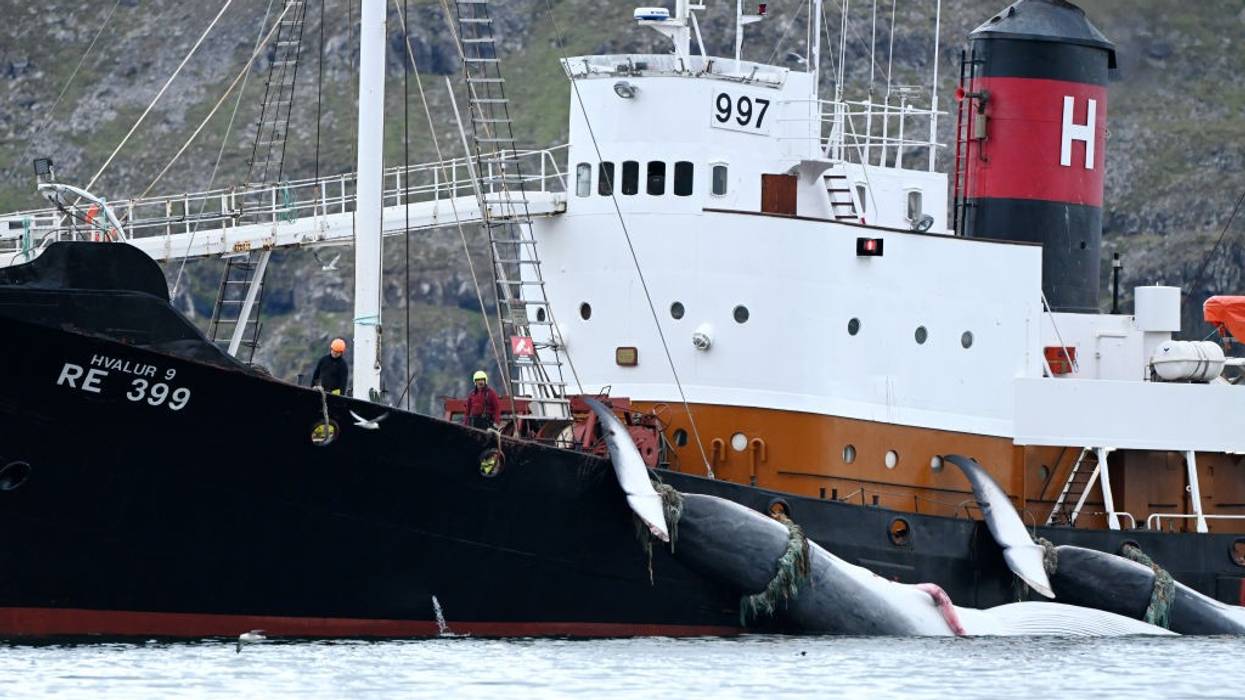'The Clown Show Continues': Billy Long Out at IRS, But Probe to Persist
Senate Finance Committee Ranking Member Ron Wyden said that "my investigators have obtained alarming information pertaining to Long's conduct at the IRS that we have begun to investigate."
Less than two months after U.S. Senate Republicans confirmed Billy Long as head of the Internal Revenue Service, the scandal-plagued commissioner confirmed on Friday that he is leaving the IRS to serve as President Donald Trump's ambassador to Iceland.
U.S. Senate Finance Committee Ranking Member Ron Wyden (D-Ore.)—who opposed Long's IRS nomination with the rest of the chamber's Democrats—pledged in a Friday statement that a probe of the outgoing commissioner will continue.
"From the minute Trump announced Billy Long as his IRS pick it was obvious this would end badly, but every Senate Republican voted to confirm his nomination anyway," said Wyden. "He didn't even last two months on the job. Let's not forget that there wasn't a vacancy at the time Trump announced Long's nomination. Danny Werfel, a skilled leader with fans among Democrats and Republicans, had years left on his term."
The senator pointed out that "in just a handful of months, Trump and his crew have already gutted taxpayer service, weaponized IRS data against innocent taxpayers, and set us up for disaster when next year's filing season comes around. This is what Trump does—pick incompetent, unserious people for serious jobs, and sit back as the damage piles up."
"Billy Long left Congress a few years ago and went straight into the tax fraud industry, his only real experience in tax before his nomination," he added. "My investigators have obtained alarming information pertaining to Long's conduct at the IRS that we have begun to investigate, and that process will continue regardless of whether Trump stashes Long away in some foreign embassy."
The ouster was initially reported by The New York Times, which noted that "Treasury Secretary Scott Bessent will serve as acting commissioner until a permanent replacement takes office," according to a senior Trump administration official.
Long then confirmed the development on his personal social media account, saying that "it is a honor to serve my friend President Trump and I am excited to take on my new role as the ambassador to Iceland. I am thrilled to answer his call to service and deeply committed to advancing his bold agenda. Exciting times ahead!"
He later added a joke about Immigration and Customs Enforcement: "I saw where former Superman actor Dean Cain says he's joining ICE so I got all fired up and thought I'd do the same. So I called Donald Trump last night and told him I wanted to join ICE and I guess he thought I said Iceland? Oh well."
A spokesperson for Bessent's department, which includes the IRS, said in a statement: "Treasury thanks Commissioner Long for his commitment to public service and the American people. His zeal and enthusiasm to bring a fresh perspective to the federal government was evident in both the House of Representatives and as part of the Trump administration. A new candidate for commissioner will be announced at the appropriate time."
Long previously represented Missouri in the U.S. House, where Ways and Means Committee Ranking Member Richard Neal (D-Mass.) responded to the IRS commissioner's exit with a statement blasting Trump.
"We don't even need more details on Trump's latest scuttle to know how damaging his presidency has been for the IRS," Neal said. "With nearly a new commissioner each month and weakened customer service from his mass firings, the rampant instability comes at the expense of all who rely on it. One thing is for sure: Secretary Bessent should focus on his own job before collecting more responsibility."
Several critics, including Neal, highlighted that Long was preceded by several IRS leaders this year. As retired Adm. Mike Franken, a former Democratic U.S. Senate candidate from Iowa, put it on social media: "IRS Commissioner Billy Long is removed, the sixth change this year, by the guy who only hires 'the very best people.' The clown show continues."
Long's firing prompted widespread speculation that he was leaving the IRS because he refused to comply with an order from the president. Journalist Josh Marshall wondered, "How bad did the ask have to be for a Trumpy sleazebag like Billy Long to say no?"


